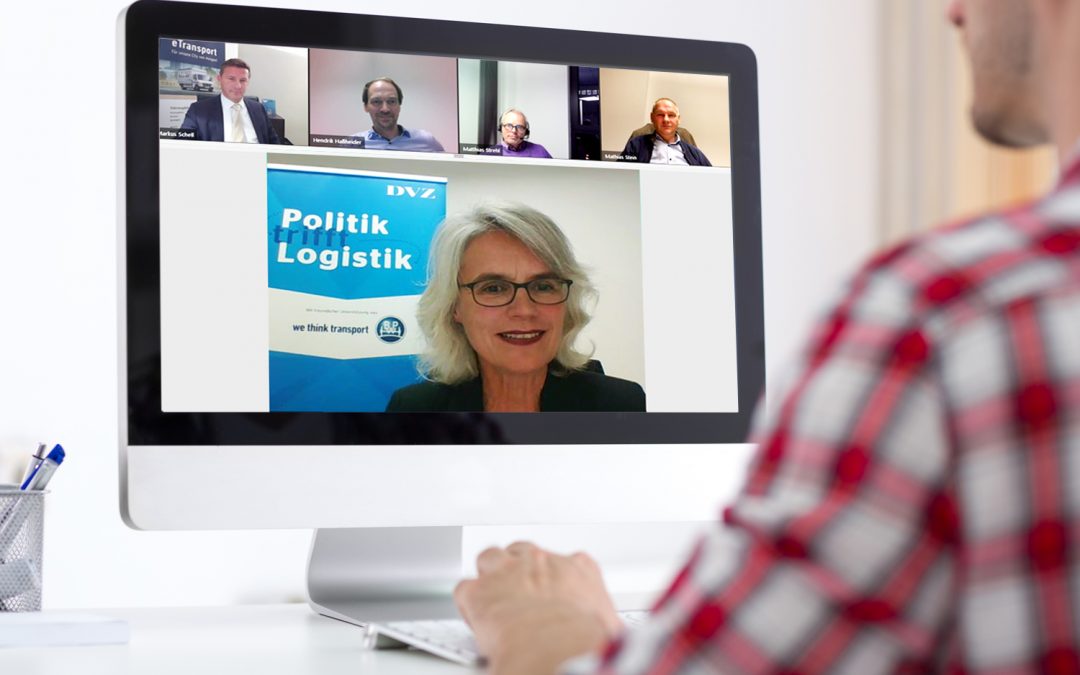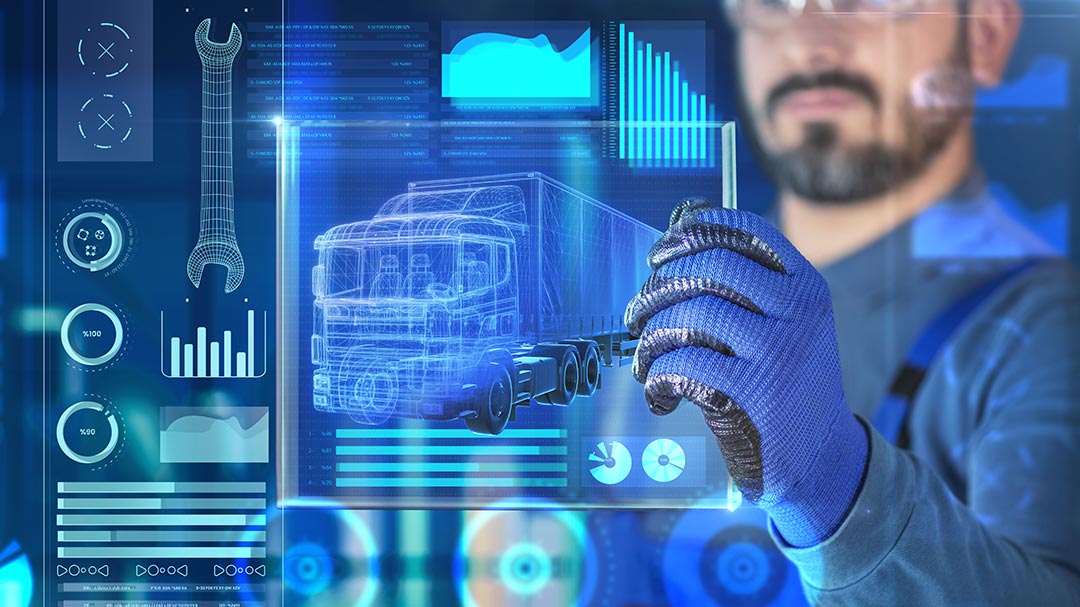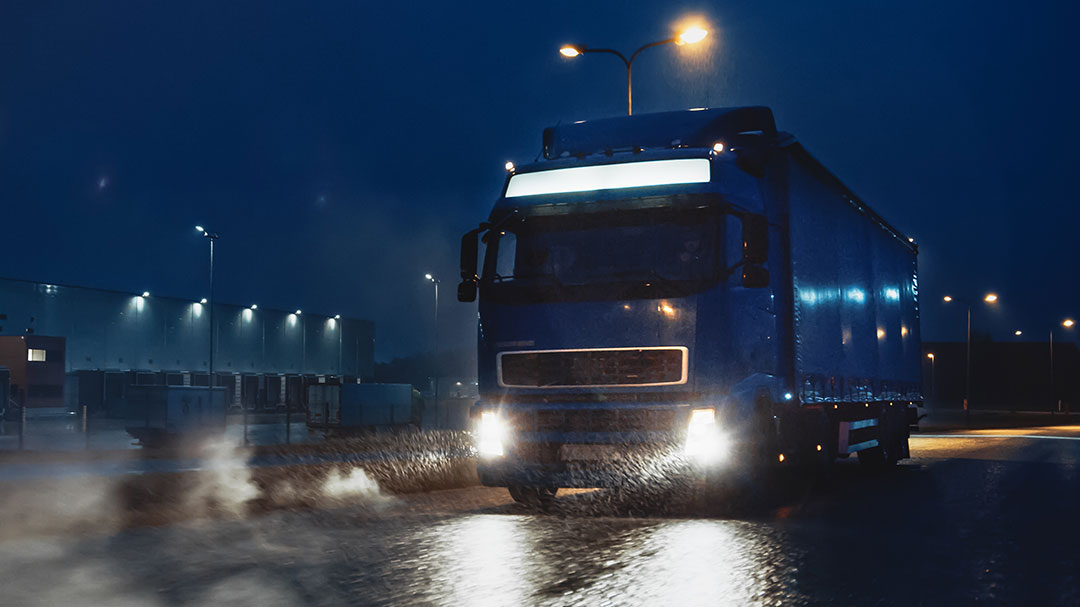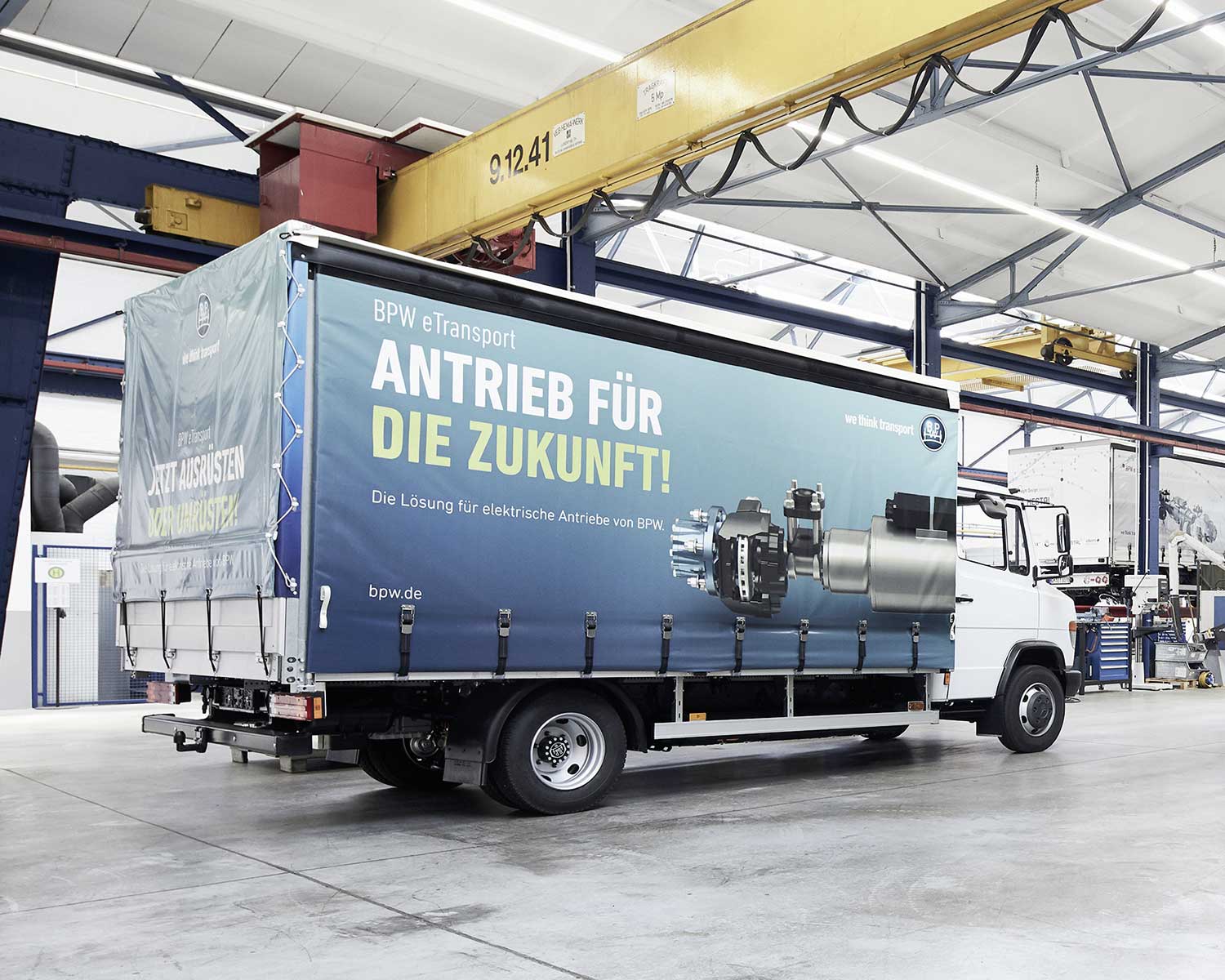Reading time: approx. 4 minutes
Text: Juliane Gringer
Photos: BPW, AdobeStock – luckybusiness – DVZ
In order for logistics to make its contribution to climate protection, it needs new drive concepts in road freight transport. The demand on politicians: they should ensure clarity in the funding landscape! Representatives from politics and small and medium-sized enterprises (SMEs) discussed this at the online conference “Politics meets Logistics”.
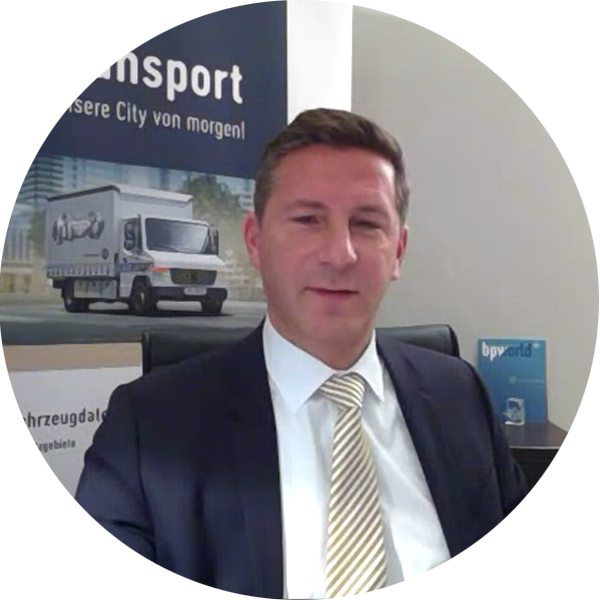
Markus Schell, personally liable managing partner at BPW Bergische Achsen KG:
»The days of burning anything – whether diesel, gas or other substances – are long gone.«

Dr Hendrik Haßheider, senior government official at the Federal Ministry of Transport and Digital Infrastructure:
»We decided to consider several technologies, monitor further developments and then also promote the associated infrastructures accordingly.«

Matthias Strehl, CEO of Ludwig Meyer GmbH & Co. KG:
»As hauliers, we are committed to greater sustainability because we have a responsibility towards the environment and society.«

Mathias Stein, member of the German parliament, SPD, member of the Committee on Transport and Digital Infrastructure:
»Fleets need to be made carbon neutral quickly over the next few years, and all technologies should be used to achieve this.«
In future, the Federal Ministry of Transport wants to subsidise up to 80 percent of the additional costs for climate-friendly vehicles in order to implement the government’s Climate Action Programme – regardless of the tonnage and the technology used. “That’s a strong announcement,” emphasised Matthias Strehl, CEO of Meyer Logistik, at the “Politics meets Logistics” conference in November 2020. The format established by DVZ Deutsche Verkehrs-Zeitung regularly brings representatives of the transport industry into conversation with political decision-makers – this time at a digital meeting due to Corona. The discussants underlined that logistics needs a sustainable funding framework in order to realise new drive concepts in road freight transport. The participants of the Wiehler Forum industry meeting organised by the BPW Group had voted on the topic in advance.
Markus Schell, personally liable managing partner at BPW Bergische Achsen, also welcomed the government’s clear commitment to funding: “This pledge helps to get zero-emission vehicles on the road faster and in larger numbers.” BPW not only offers a proven concept for inner-city emission-free transport with the electrically driven axle eTransport. In 2021, the company also plans to launch its own electric 7.5 tonne truck together with renowned industry partners – which will then also be eligible for funding.
Climate protection is a Herculean task
According to Dr Hendrik Haßheider, senior government official at the Federal Ministry of Transport and Digital Infrastructure, where he is responsible for alternative fuels and drives, the government is committed to intensifying the measures together with the responsible bodies of the European Union – which should also benefit the small and medium-sized supplier industry. Markus Schell also supports this: “You can only buy what has already been developed. ” In his opinion, the technological potential of German SMEs has not been focused on enough so far: “SMEs have many technologies that could be put directly on the road, but the shell is simply missing.”

